#Shambhala Publications
Text
Book of the Day - Living Kindness
Today’s Book of the Day is Living Kindness – Metta practice for the whole of our lives, written by Kevin Griffin in 2022, and published by Shambhala Publications.
Kevin Griffin is a leader in the mindful movement and a Dharma Leader and Teacher at Spirit Rock Meditation Center. He is the author of five previous books, including One Breath at a Time. He has studied with the leading Western…
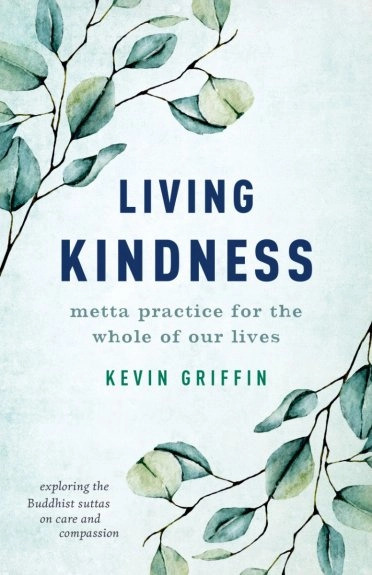
View On WordPress
#Brahmaviharas#Buddhism#Kevin Griffin#kindness#Living Kindness#meditation#Metta#MMQG#MMQG Meditation#Raffaello Palandri#Shambhala#Shambhala Publications
18 notes
·
View notes
Text
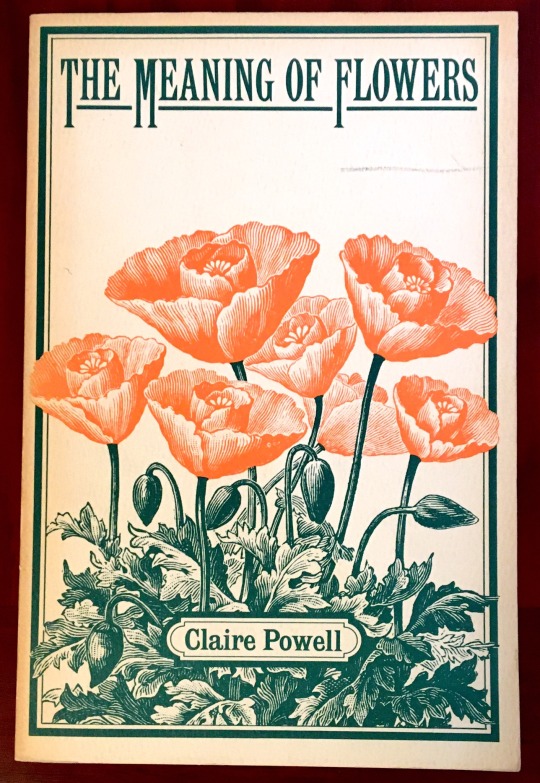


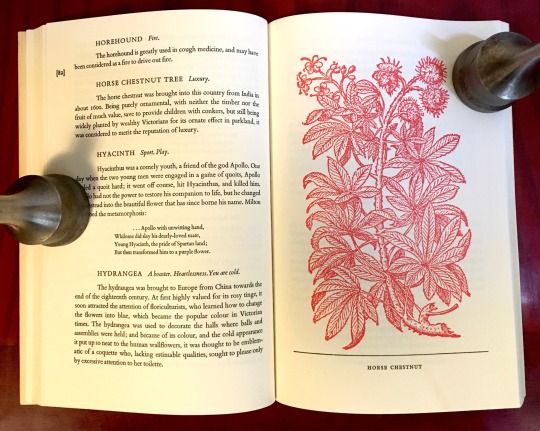
Book 130
The Meaning of Flowers: A Garland of Plant Lore and Symbolism from Popular Culture & Literature
Claire Powell
Shambhala 1979
This is a rather early Shambhala publication, and it’s really quite beautiful. A book of flower lore, it’s printed in three colors and has lovely historical woodcut illustrations.
#bookshelf#illustrated book#library#collection#personal library#personal collection#books#book lover#bibliophile#booklr#meaning of flowers#Shambhala publications#Claire Powell#natural history#reference
0 notes
Text
The road from grief to Zen
The road from grief to Zen
CONFESSIONAL CULTURE
I began this biographical log as a place to park my short stories, hoping to add new ones as I went along.
When my wife died it became more of an autobiographical log, mostly about our life together, her death and my grief, becoming at times (in retrospect) an embarrassingly personal confessional.
My self-centered grief for the loss of a soulmate and my sorrow for her loss of…

View On WordPress
#Bashō#Buson#Issa#Japanese poetry#Memories of S#Ryokan#Shambhala Publications#W.B. Yeats#Widower#Zen
0 notes
Text

"Not Causing Harm
LEARNING NOT TO CAUSE HARM to ourselves or others is a basic Buddhist teaching. Nonaggression has the power to heal. Not harming ourselves or others is the basis of enlightened society. This is how there could be a sane world. It starts with sane citizens, and that is us.
The most fundamental aggression to ourselves, the most fundamental harm we can do to ourselves, is to remain ignorant by not having the courage and the respect to look at ourselves honestly and gently.
The ground of not causing harm is mindfulness, a sense of clear seeing with respect and compassion for what it is we see. This is what basic practice shows us. But mindfulness doesn’t stop with formal meditation. It helps us relate with all the details of our lives. It helps us see and hear and smell without closing our eyes or our ears or our noses. It’s a lifetime’s journey to relate honestly to the immediacy of our experience and to respect ourselves enough not to judge it.
As we become more wholehearted in this journey of gentle honesty, it comes as a shock to realize how much we’ve blinded ourselves to some of the ways in which we cause harm.
It’s painful to face how we harm others, and it takes a while. It’s a journey that happens because of our commitment to gentleness and honesty, our commitment to staying awake, to being mindful. Because of mindfulness, we see our desires and our aggression, our jealousy, and our ignorance. We don’t act on them; we just see them. Without mindfulness, we don’t see them and they proliferate."
Pema Chödrön - Comfortable with Uncertainty - Shambhala Publications
25 notes
·
View notes
Text
Chapter 8
@journeythroughjourneytothewest
I'm not doing the read along, but I wanted to point out something that others might find interesting.
You will recall that the Buddha has a not so nice opinion about South Jambūdvīpa, a.k.a. the Land of the East (China).
I have watched the Four Great Continents, and the morality of their inhabitants varies from place to place. Those living on the East Pūrvavideha revere Heaven and Earth, and they are straightforward and peaceful. Those on the North Uttarakuru, though they love to destroy life, do so out of the necessity of making a livelihood. Moreover, they are rather dull of mind and lethargic in spirit, and they are not likely to do much harm. Those of our West Aparagodānīya are neither covetous nor prone to kill; they control their humor and temper their spirit. There is, to be sure, no illuminate of the first order, but everyone is certain to attain longevity. Those who reside in the South Jambūdvīpa, however, are prone to practice lechery and delight in evildoing, indulging in much slaughter and strife. Indeed, they are all caught in the treacherous field of tongue and mouth, in the wicked sea of slander and malice (emphasis added). However, I have three baskets of true scriptures which can persuade man to do good (Wu & Yu, 2012, vol. 1, pp. 204-205).
我觀四大部洲,眾生善惡,各方不一:東勝神洲者,敬天禮地,心爽氣平;北俱盧洲者,雖好殺生,只因糊口,性拙情疏,無多作踐;我西牛賀洲者,不貪不殺,養氣潛靈,雖無上真,人人固壽;但那南贍部洲者,貪淫樂禍,多殺多爭,正所謂口舌兇場,是非惡海。我今有三藏真經,可以勸人為善。
This is similar to foreign views of China that the historical monk Xuanzang encountered in India. Brose (2021) writes:
For many of the monks he had befriended, the decision [to return to China] was hard to fathom. “India is the birthplace of the Buddha,” they reminded him. “Although the Great Sage is gone, his traces remain. To travel around and venerate them is enough to make one’s life content. Why would you want to give this up after having come here? China is a barbarian land where people are neglected, and the Dharma is despised. That is why no buddhas have ever been born there. The people have narrow aspirations and deep impurities, so sages do not go there. The air is cold and the land is dangerous. How can you think of returning there?” Xuanzang reportedly responded by quoting an exchange from the Vimalakīrti Sūtra, where the noble layman Vimalakīrti asks Śāriputra, “Why does the sun come to Jambudvīpa?” The answer: “To illuminate it and eliminate the darkness.” If Xuanzang remained in India, the true Dharma might never be known in China (pp. 61-62).
Xuanzang believed he lived in the latter day of the law, so he felt it was important to return to China with fresh sutras so that Buddhism would continue to flourish there for centuries to come.
Sources:
Brose, B. (2021). Xuanzang: China’s Legendary Pilgrim and Translator. Boulder, Colorado: Shambhala Publications, Inc.
Wu, C., & Yu, A. C. (2012). The Journey to the West (Vols. 1-4) (Rev. ed.). Chicago: University of Chicago Press.
29 notes
·
View notes
Text
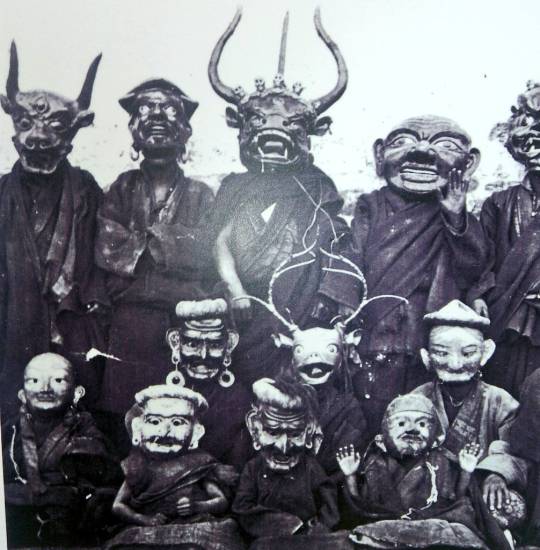
The Anatomy of a Common Tibetan Ritual: The Lhasang
The lhasang—literally ‘‘higher purification offering,’’ which may be glossed as ‘‘invocation of the higher beings’’—is one of the most common rituals in traditional Tibet. While some rituals are performed strictly for temporal ends and others for spiritual ends, the lhasang is interesting because it is performed for both mundane and supermundane purposes. And, while most rituals are directed to a particular being, the lhasang is a broad invocation that calls upon all the various ‘‘good spirits’’ and well-intentioned deities, as well as upon the various buddhas, bodhisattvas, protectors, and departed teachers of the buddhadharma.
Tibetan monks wearing the Cham masks for ritual dances, 1904
51 notes
·
View notes
Text

At first, until you actually recognize emptiness, you have to gain an understanding of it through deep and careful reflection on the teacher's pith instructions. Then, when you first recognize it, your experience of emptiness will not be stable. To improve it, blend meditation and post-meditation periods. Try not to fall back into ordinary delusion, but to maintain the view of emptiness in all your daily activities. Meditation and the path of action will mutually enhance each other.
- Dilgo Khyentse Rinpoche - The Heart of Compassion - Shambhala Publications
#buddha#buddhist#buddhism#dharma#sangha#mahayana#zen#milarepa#tibetan buddhism#thich nhat hanh#Dilgo Khyentse Rinpoche
7 notes
·
View notes
Text

“Woman is a ray of God. She is not that earthly beloved: she is creative, not created.”
― Rumi. “The Rumi Collection”, p.5, Shambhala Publications
#rumi#the rumi collection#woman is a ray of god#divine feminine#goddess#sufi gnosis#beloved#sufi poetry
13 notes
·
View notes
Photo

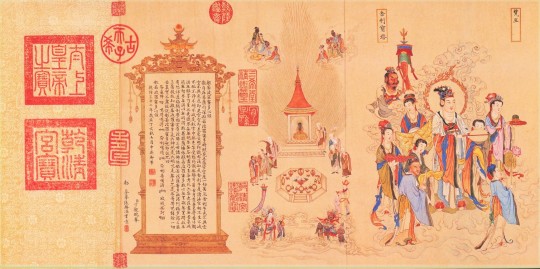
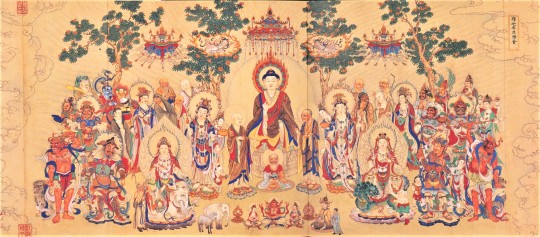
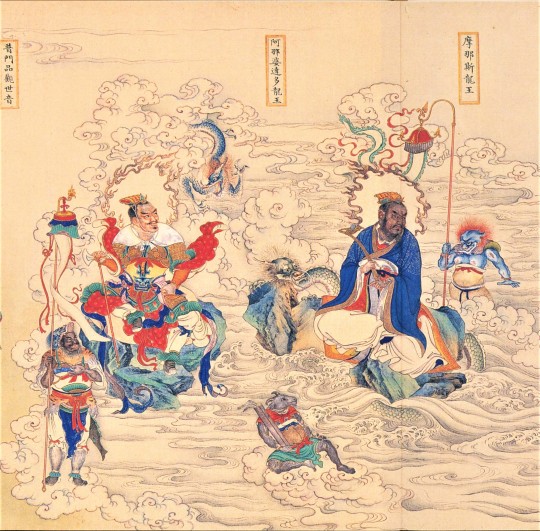


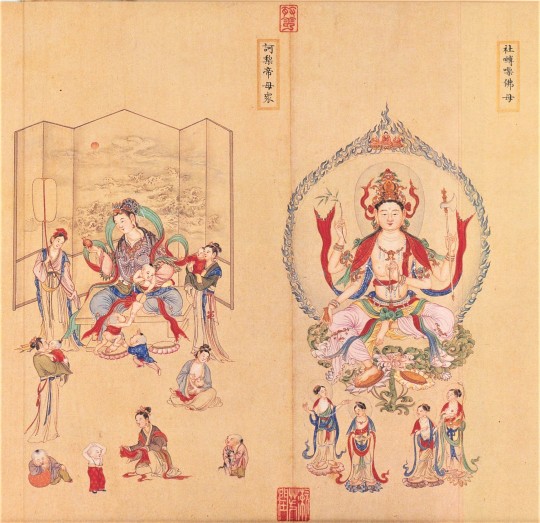
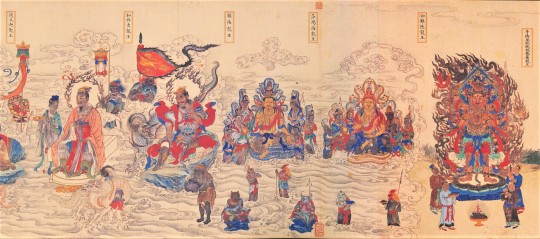


Decorative Sunday
Published in Boston by Shambhala Publications in 2000, The Buddha Scroll is a twenty-first century facsimile of an eighteenth-century reproduction of a twelfth-century work. This accordion-fold book folds out to replicate the 36-foot Qing dynasty scroll, painted by Ding Guanpeng ( 丁觀鵬) in 1767. Ding Guanpeng was commissioned by Emperor Gaozong of Qing to reproduce the Pictorial of Buddhist Icons, completed in 1180 by Zhang Shengwen of the Kingdom of Dali (present day Yunnan Province) after the original work was found water damaged and mismounted.
The Kingdom of Dali and it’s predecessor Nanzhao were situated between Tibet and China and encompassed many ethnic and linguistic groups. Translator Thomas Cleary, who contributed an introduction to the scroll as well as a key to the figures found in the scroll, writes that the depictions in the scroll “reflect the syncretic cultural background of its original model, representing a whole range of Buddhism … it is an unusually eclectic work of art, illustrating the continuity of the many currents that form the great ocean of Buddhism.”
The Buddha Scroll was a gift of Dick Schoen.
Find more Decorative Sunday posts here.
-Olivia, Special Collections Graduate Intern
#Decorative Sunday#The Buddha Scroll#Shambala Publications#Ding Guanpeng#Zhang Shengwen#Kingdom of Dali#Nanzhao#Thomas Cleary#Buddhism#Chinese Scrolls#Chinese scroll paintings#Buddhist Scrolls#Buddhist Scroll Paintings#decorative art#decorative arts#decorative plates#olivia
33 notes
·
View notes
Text
Today I want to tell you about a book I have come to admire. “Desert” – Poems by David Hilton. Hilton practices Ch-an (Japanese: Zen), which he defines as being an extended form of Taoism. He has a prose book on that,”China Root: Taoism, Ch'an, and Original Zen,” which I mention here as his Ch’an practice directly influences these marvelous poems.
From ‘Desert’
Morning light
comes. I
gaze into planetary
shadow deep as
blindness, and morning
light gradually
comes, elemental
forms too: desert,
mountain,
sky. Morning
light comes
and sight precisely
as it did
through its long
slow
beginnings, opening
this world
inside us: planetary
desert, mountain,
sky when
there were
no words, no
words for
any of this.
—-
It’s the least
possible hope: food, water,
shelter. Human
history begins
there, and I
never leave
those beginnings
really, wander at home
there, touching
the possibilities of
less.
—-
I wake
somewhere deep
inside the blazing
cascade of star
generations. It’s early
spring, morning
air cool, sun
warm. I linger out
breakfast, walk, mirror
sky. The usual
things. Life seems
so simple
sometimes. Who’d suspect
this is how it
happens, how that
cascade of fire
rips day
by day through
me, licking
its wounds?
—-
Outstanding, to me. I'd like to capture the Sacramento Valley half as well as he does here with the desert. Hinton lives in Vermont, near Green Mountain, I expected to find in his bio that it was Joshua Tree or Palm Springs. Perhaps the gentleman spent some time there, for the poetry has a Joshua Tree feel to it. Maybe I just miss Joshua Tree. It’s been years since I went there, and I love it there.
Let me give you a couple helpful links.
David Hinton’s bio on the Shambhala publication site.
You can also order this book and others by Hinton. Let the profits stay with the poet and publisher. Why give Amazon a cut?
Hinton’s page on the Words Without Borders site.
Like Shambala, these are good folks, right Ma? You betcha.
Desert. Wonderful poems, very engaging for me, as Mr Hinton paints images with language that flows, at times easy like a stream or brook, and other times with the strength of a desert flash flood. Enough said.
Thanks for your support. The Poetry Zendo blog posts once a day, usually before 7 AM Pacific time, and the link is posted on various social media. I also usually re-post a couple of the old ones during the day. Right now, those re-posts are from 10 months ago. My working theory is nobody sees them all, so I give it a chance to reach people.
More people log on every week, and if I reach the numbers my old blog (Pablo) was getting, I’ll go back to just posting a day. Why didn’t I just keep that old blog? Maybe it’s time to get my cognitive ability tested. Again. Of course, maybe I’m just not bright, as my Pop often said. Very often.
Oh, yes.
James
#poetry#poem#poets on tumblr#poetry on tumblr#poems on tumblr#writers and poets#dead poets society#writers on tumblr#poetrycommunity#poetscommunity#poetry writing#original poetry#poems and poetry#poetry blog#poetry corner#tumblr poetry
2 notes
·
View notes
Text
Soulmates Beyond the Strings: Genshin Impact
ORIGINAL CHARACTER DIRECTORY
⋯ ✩ A/N:
Genshin Impact OC's abound! Not all are listed—I plan on only adding ones with publicized and dedicated fics. Also, this is the non-Shambhala list. Will be updated periodically/randomly!

Ancient Dreams in a Modern Land.
💭— Hauteclaire — Overview + Combat Info; [Voice-overs, character stories, etc. TBA]
💭— Ramona Müller — [Voice-overs, character stories, etc. TBA]
💭— Yemei — [Voice-overs, character stories, etc. TBA]
💭— Ulfhild — [Voice-overs, character stories, etc. TBA]
💭— Yrsa — [Voice-overs, character stories, etc. TBA]

The Brazen & The Cold.
💭— Aisha — [Voice-overs, character stories, etc. TBA]
💭— Rayyan — [Voice-overs, character stories, etc. TBA]

Heart of the Sea.
💭— Kafka — [Voice-overs, character stories, etc. TBA]
💭— Anais — [Voice-overs, character stories, etc. TBA]
#character directory#fandom: genshin impact#oc#original story#original character#genshin impact#genshin impact oc#genshin oc
2 notes
·
View notes
Text
Book of the Day - The Self-Talk Workout
Today’s Book of the Day is The Self-Talk Workout, written by Rachel Goldsmith Turow in 2022 and published by Shambhala.
Dr. Rachel Goldsmith Turow is a psychotherapist, a researcher, an adjunct faculty member at Seattle University and the Icahn School of Medicine at Mount Sinai, and a mindfulness teacher. She is a renowned expert in teaching how to use mindfulness, self-compassion, and cognitive…

View On WordPress
#Book#Book Of The Day#book recommendation#bookstagram#booktok#Rachel Goldsmith Turow#Raffaello Palandri#Shambhala#Shambhala Publications#The Self-Talk Workout
12 notes
·
View notes
Text
elena and jeff and survivor's guilt :
elena was discouraged from going after lazarevic. she was practically flat-out told no ; that it was a waste of time and resources and there was no point because pretty much all accounts showed him as dead. but she fought for it. she had a gut feeling, a hunch, and a little bit of evidence — she wasn't going to walk away. but she was sort of left on her own, given minimal support in chasing it. elena asked jeff to come with her. he didn't approach her. she practically convinced him to do it — and he agreed but not after she made an argument for why he should. he was there because of her. elena always knew it would be risky — and jeff did too — and it's likely he would have been injured whether they ran into nate and chloe or not. and that's what weighs on her the most. not that she would try to blame anyone else (she wouldn't), but it's knowing that it's pretty much unequivocally her fault. he wouldn't have been in that position without her.
"I never should have got you into this mess."
"You didn't. I got here on my own."
"No, I mean ... The rest of it."
"Well, we knew what the stakes were."
i feel like elena tries to lift some of the guilt off of herself by reminding herself that jeff agreed, despite the risks. not that it helps all that much. it's pretty much the one thing that's never left her. i mean most things she's survived haven't, frankly. they all stick with her one way or another. but jeff more than most. he trusted her enough to follow her into a warzone and she thought she could and would keep them safe, and she didn't.
once she was back in the states, i do think elena went to see his family. they had no doubt been informed already, since elena contacted her employer/publication as soon as possible, but she wanted to see them in person. she wanted to offer her condolences and apologize. she attends his funeral and it sticks with her for a long time. it's even one of the reasons she ultimately leaves that specific reporting job.
and even knowing she was right in tailing lazarevic, that he was alive and still doing the awful things he had always been doing, was never any amount of solace for her. she can't take any pride or satisfaction in it. it just feels wrong. nothing ever came out about any of it — not from her at least. she never wrote anything, jeff's footage was all lost ; at that point, she had nothing to say. especially when she was in the midst of her own physical and mental recovery. ultimately, taking on the story winds up being one of her biggest regrets to date.
she was friends with jeff, considering she'd at least mentioned nate to him in some capacity. they weren't terribly close, but they were certainly friendly. dinners, lunches, drinks — especially when they were globe-trotting to find lazarevic. so watching him get hurt and die the way he does struck this deep chord within her that she's never fully recovered from. she almost struggles to make sense of it all. the sight of his body lying there definitely haunts her in a way, and knowing they just left him there chills her to the bone — he never got a proper burial.
along with her own near-death experience in shambhala, jeff was a wake-up call for elena. this sort of sign that she was playing things too fast and loose, that she learned all the wrong things from the adrenaline high of el dorado. he was the first person in her life that she had to watch die in such a way — and he was totally innocent. it subconsciously fuels the fear she develops for herself, for nate, and for sully, in what this sort of dangerous, high-octane life means. the idea of losing her own life terrifies her, but the idea of watching more people die, especially people she cares about, is even worse. she doesn’t think she’d be able to handle it (hint: perhaps part of the reason she and nate separated but that’s another discussion for another day). she just can’t watch it happen again, and so she's even willing, at this point, to risk herself just to keep people safe.
#study / elena fisher.#when jeff is just jeff the cameraman but he is also so importnat#anyway here's two loooong elena posts in one day#bc i've been chipping away at them in my drafts Forever
2 notes
·
View notes
Text
Turning Words With Hozan Alan Senauke
In our very first podcast episode: Alan Senauke shares turning words from his life, including the powerful invitation from his own teacher to "let things fall apart".
Hosan Alan Senauke is the author of Turning Words © 2023 by Alan Senauke. Featured in arrangement with Shambhala Publications, Inc. Boulder, CO.
In this very first episode of the Dewdrop Dialogues podcast, Vanessa Able talks with Hosan Alan Senauke, Abbot of the Berkeley Zen Center in California and author of the new book ‘Turning Words.’ In Zen tradition, ‘turning words’ are words that can help…

View On WordPress
2 notes
·
View notes
Text
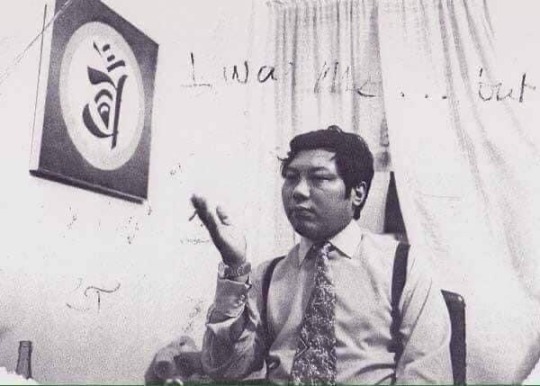
WORK AS SPIRITUAL PRACTICE
Chögyam Trungpa Rinpoche
I have met many people who have a general hesitation to go to work. When you are short of money, you have to put in effort and go through the whole pain of getting a job and committing yourself to situations that are not appealing to you and are often a source of more pain. That pain is seen as worldly pain without any redeeming quality. You see it purely as suffering. If you have the attitude that you fundamentally don’t want to work with pain, then when you become interested in spirituality, you don’t want to deal with any pain whatsoever. You are seeking transcendental pleasure, and work and money seem unromantic. They’re too close to home. They’re contradictory to your whole idea of spirituality, which is to receive the highest pleasure, bliss.
However, you might find that you have to go back to the original pain that you wanted to escape. You begin to see that spirituality is not pleasure seeking and that your work situation is also spirituality, but not spirituality with pleasure or any reward. You are not trying to gain anything, but you are trying to go deeper and unlearn, undo yourself. It has nothing to do with pleasure at all, actually. The point of spirituality is to face the facts of life, and you might learn the facts of life through working. Then maybe your relationship to money may change. Because your fundamental attitude toward work is different, money becomes a naturally easier matter. There’s nothing evil about it.
Work is also something real, just as much as spiritual practice. So work doesn’t have to have any extra meaning behind it, but it is spirituality in itself. Work doesn’t need another philosophical reinforcement. You may want to work for a good reason, something that proves that what you are doing is valid. Maybe you think that you can’t relate to work unless you have a good philosophical reason, and without that, your work remains mechanical. Then quite possibly you are missing the point of spirituality altogether. Spirituality is not other than work, just to make the point clear. Work is spirituality, work is real—as much as anything else.
From "Work, Sex, Money: Real Life on the Path of Mindfulness" by Chögyam Trungpa (Shambhala Publications, 2011).
15 notes
·
View notes
Text
The Tao of Physics
THE TAO OF PHYSICS Shambhala Publications, Inc. 1123 Spruce Street Boulder, Colorado 80302 0 1975 by Fritjof Capra. All Rights Reserved. ISBN: o-87773-077-6 (cloth) o-87773-078-4 (paper) LCC: 75-10318 Distributed in the United States by Random House, inc. Manufactured in the United States of America.
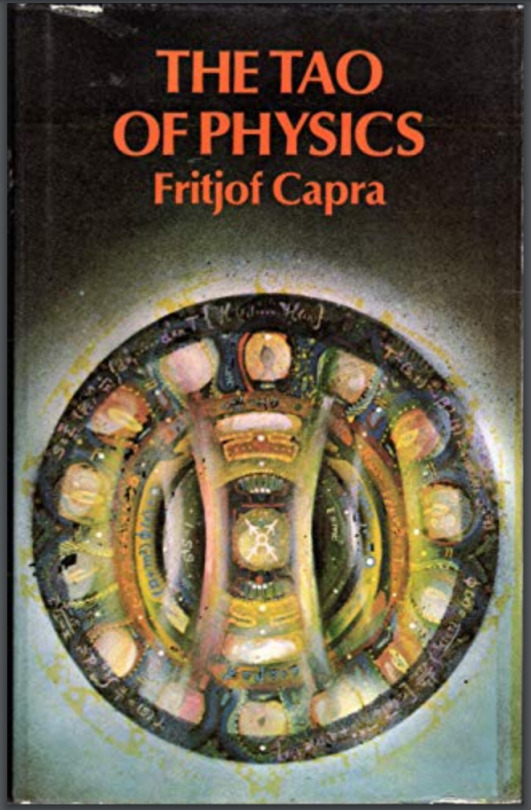
An academic paper. You can download the free PDF online.
In The Tao of Physics, Fritjof Capra dives into the fascinating world of modern physics, uncovering an unexpected connection between the ancient wisdom of Eastern mysticism and the latest discoveries of modern science. Combining a deep understanding of both disciplines, Capra reveals the hidden harmony between the physical universe and the spiritual realm, showing that reality is an interconnected whole and that the fundamental truth of existence is the unity of all things. Through captivating stories and thought-provoking insights, The Tao of Physics will challenge and inspire readers to look beyond the boundaries of their own beliefs and explore the mysteries of the universe.
“I 'saw' cascades of energy coming down from outer space, in which particles of high energy were created and destroyed in rhythmic pulses. I felt its rhythm and I 'heard' its sound, and at that moment I knew that this was the Dance of Shiva, the Lord of Dancers worshipped by the Hindus. I had gone through a long training in theoretical physics and had done several years of research. At the same time, I had become very interested in Eastern mysticism and began to see the parallels to modern physics in Zen.”
4 notes
·
View notes